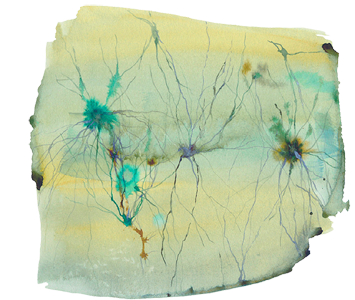Artifice and Intelligence
We are constantly surprising ourselves with what we discover in science. We think we have something figured out, and then, suddenly, we see something that changes everything: an electron goes through two slits at the same time, or an acquired trait is inherited. The whole business keeps us on our toes.
We surprise ourselves in the social sciences as well, which is itself surprising. We have, collectively, thousands of years of experience with one another. You’d think we would know ourselves pretty well by now. But we keep going along, surprising ourselves at each corner.
Take, for example, how we make decisions.
For a long time, the great Western thinkers — from Plato to Descartes — thought that decision-making is, or at least should be, a rational process. The very word decide comes from the Latin root decidere, which means to cut off, suggesting a mental process by which a range of options are cut off to settle on a final one. Our emotions, said the great thinkers, have no place in reasonable decision-making.
We thought we had this all figured out when, in 1848, a young man named Phineas Gage sustained a head injury that made him lose his ability to feel emotions. Surprisingly, he also lost his ability to make decisions.
We’ve seen this natural experiment repeated, again and again, in modern patients who have had damage to their prefrontal cortex. Losing our capacity to feel makes us unable to decide. Without emotion, reason flails.
I imagine we are just beginning to scratch the surface of this whole decision-making thing, and there are other experiments that give us room for wonder. In one study, humans with serious heart disease expressed less emotion than those with healthy hearts. In another, changing the bacteria in the stomach of a mouse was shown to change its decisions.
We have, as it turns out, brain cells all over our body. Our heart and gut, in particular, are little satellite brains; there are 100 million neurons in our gut alone. They communicate with a little part of the brain in the front that is responsible for integrating our emotions into our decision-making processes. Our ability to make decisions — and more generally, our intelligence — depends on our emotions, which in turn, depends on our bodies.
Perhaps we shouldn’t be so surprised. These truths are reflected in our language. We are told, when we are making a big decision, to listen to our heart, or to go with our gut feeling.
Nevertheless, I think it will take us some time to fully wrap our heads around this — or should I say wrap our bodies around this. Once we do, I think it will change the way we think about artificial intelligence.
The roots of artificial intelligence are based in the tradition of rational decision-making. If making a decision just involved looking objectively through a space of options and choosing the best one, then our computers could do that quite well. And in fact they do, when we restrict the domain to tasks suited to this sort of intelligence, like playing chess or classifying an image. All we need to do is give the computer an objective function.
But deciding the objective in the first place, that requires a deeper intelligence; one that, for now, seems inseparable from our ability to have emotions. And perhaps this holds a key to what truly makes us human. The computers, they can think — in some cases better than we can — but, for the foreseeable future at least, they will need us to feel.
